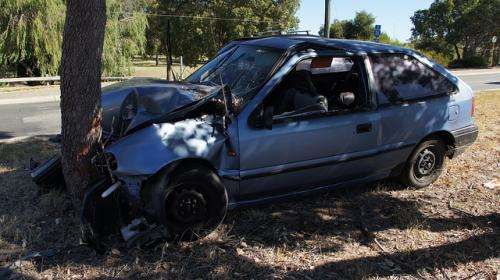Risky driving linked to ADHD and drug use

Drivers with attention deficit hyperactivity disorder (ADHD) who use drugs or alcohol are more likely to take part in risk-taking behaviour, research has shown.
The 12-month study examined sexual, drug-related and driving-related risk behaviours in people with ADHD seeking treatment for drugs or alcohol.
Curtin University's director of the National Drug Research Institute Professor Steve Allsop says the study showed that for some people, ADHD predated alcohol and drug use.
He says not all people diagnosed with ADHD or mental illness would take drugs or alcohol.
"Somebody who is impulsive, for example, might not be inclined to become enmeshed in drugs and alcohol, but if [drugs and alcohol] are part of their environment, then the impulsivity might lead to increased risk and increased problems when they do use," he says.
As part of the study, 489 people seeking treatment for drug or alcohol issues were interviewed and assessed on their treatment history, demographics, psychiatric history, self-reported adult ADHD symptoms and self-reported sexual, drug-related and driving-related risk behaviours.
Results showed 32 per cent screened positive for adult ADHD symptoms, with onset prior to age 12.
Those who screened positive were more likely to have started smoking and using drugs before the age of 15, and to have a prior diagnosis of childhood ADHD, anxiety, depression and personality disorder.
The report found the risk-taking behaviour common in people with drug and alcohol issues was further increased in those with ADHD symptoms.
This was particularly true of dangerous driving practices, including driving without a seatbelt, driving without a valid licence, being involved in more at-fault accidents and having their licence disqualified at time of interview.
Prof Allsop says the results showed health professionals needed to account for the likelihood of dangerous driving practices, and incorporate this into risk management strategies developed for clients seeking treatment.
"Some commonly identified strategies employed in people in treatment services with amphetamine use include [managing] relationship, nutrition, and sleep," he says.
"We haven't commonly identified driving risks, and I think this points [to] the need to do that."
More information: "Risk behaviours among substance use disorder treatment seekers with and without adult ADHD symptoms." DOI: dx.doi.org/10.1016/j.drugalcdep.2014.08.008














